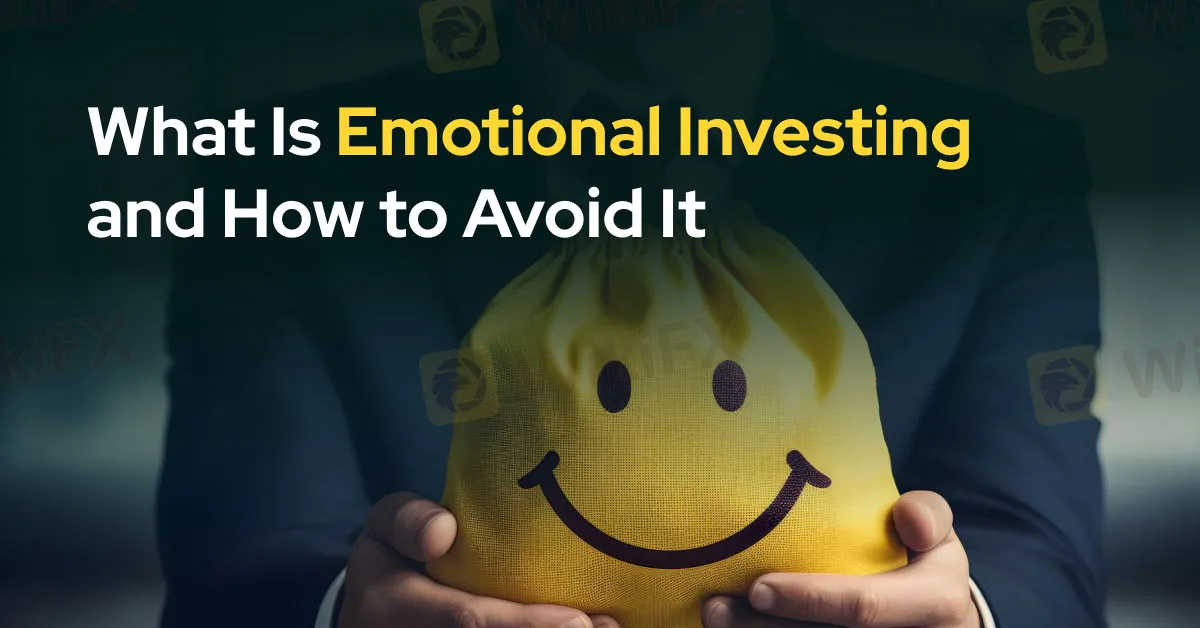简体中文
繁體中文
English
Pусский
日本語
ภาษาไทย
Tiếng Việt
Bahasa Indonesia
Español
हिन्दी
Filippiiniläinen
Français
Deutsch
Português
Türkçe
한국어
العربية
What Is Emotional Investing and How to Avoid It
Abstract:Emotional investing occurs when investors make decisions based on their emotions rather than on solid financial principles and analysis. This type of investing often involves impulsive actions driven by fear, greed, hope, or other emotions, leading to irrational choices and heightened risk.

Understanding Emotional Investing
Emotional investing occurs when investors make decisions based on their emotions rather than on solid financial principles and analysis. This type of investing often involves impulsive actions driven by fear, greed, hope, or other emotions, leading to irrational choices and heightened risk.
Emotional investors typically exhibit the following behaviors:
Chasing Trends: Buying assets that have recently performed well due to fear of missing out (FOMO).
Panic Selling: Selling investments during market downturns out of fear of further losses.
Overconfidence: Believing too strongly in their ability to predict market movements, leading to excessive risk-taking.
Regret Avoidance: Holding onto losing investments to avoid admitting a mistake.
The Risks of Emotional Investing
Investing based on emotions can lead to significant financial losses. When emotions take over, investors are more likely to:
Buy High and Sell Low: Driven by fear and greed, emotional investors often enter and exit positions at the worst possible times.
Ignore Fundamentals: Making decisions without considering the underlying value or financial health of investments.
Increase Portfolio Volatility: Frequent buying and selling based on emotional reactions can lead to higher transaction costs and increased portfolio volatility.
How to Avoid Emotional Investing
Create a Plan: Establish a clear investment strategy with defined goals, risk tolerance, and time horizon. A solid plan helps you stay focused during market fluctuations.
Stick to Fundamentals: Base investment decisions on thorough research and analysis of financial statements, market conditions, and other relevant factors.
Set Rules: Implement rules for buying and selling investments. For example, use stop-loss orders to limit potential losses and set profit-taking points to lock in gains.
Diversify: Spread your investments across different asset classes, sectors, and geographic regions to reduce risk and avoid the temptation to chase high returns in a single area.
Maintain Discipline: Avoid making impulsive decisions. Take a step back and assess whether your choices align with your investment plan.
Stay Informed: Keep up with market trends and news, but dont let short-term noise dictate your decisions. Focus on long-term objectives.
Practice Patience: Successful investing often requires patience. Avoid reacting to every market movement and give your investments time to grow.
Seek Professional Advice: Consult with a financial advisor to gain objective insights and help you stay on track with your investment goals.
Conclusion
Emotional investing can lead to poor financial outcomes due to impulsive and irrational decisions. By recognizing the pitfalls of emotional investing and implementing strategies to stay disciplined, investors can make more informed choices, reduce risk, and increase the likelihood of achieving their financial goals. Remember, a well-thought-out investment plan grounded in fundamentals is your best defense against the temptations of emotional investing.

Disclaimer:
The views in this article only represent the author's personal views, and do not constitute investment advice on this platform. This platform does not guarantee the accuracy, completeness and timeliness of the information in the article, and will not be liable for any loss caused by the use of or reliance on the information in the article.
Read more

The Hidden Checklist: Five Unconventional Steps to Vet Your Broker
Forex broker scams continue to evolve, employing new tactics to appear credible and mislead unsuspecting traders. Identifying these fraudulent schemes requires vigilance and strategies beyond the usual advice. Here are five effective methods to help traders assess the legitimacy of a forex broker and avoid potential pitfalls.

What Are The Common Types of Unregulated Forex Brokers?
Protect your investments from unregulated forex brokers with these tips. Learn about red flags, scams, and how the WikiFX app ensures safe trading experiences worldwide.

Pros and Cons of Choosing Unregulated Forex Brokers
Discover the pros and cons of unregulated forex brokers, explore risks, benefits, and key features, and learn how to evaluate their credibility with the WikiFX app.

5 Questions to Ask Yourself Before Taking a Trade
Before executing any trade, traders should pause and ask themselves critical questions to ensure they are making rational and well-informed decisions. Here are five questions to help you reflect on your strategy, manage risk, and control emotions before entering the market.
WikiFX Broker
Latest News
AIMS Broker Review
The Hidden Checklist: Five Unconventional Steps to Vet Your Broker
YAMARKETS' Jingle Bells Christmas Offer!
Why is there so much exposure against PrimeX Capital?
Russia to Fully Ban Crypto Mining in 10 Regions Starting January 1, 2025
MTrading’s 2025 "Welcome Bonus" is Here
Doo Financial Obtains Licenses in BVI and Cayman Islands
CFI’s New Initiative Aims to Promote Transparency in Trading
Currency Calculator


